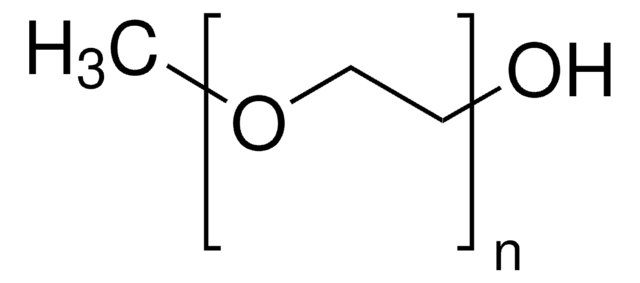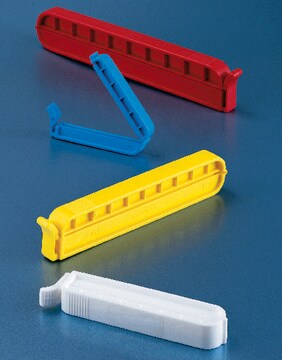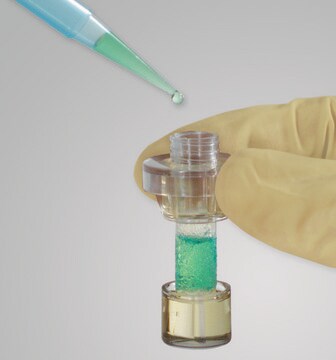88908
Methoxypolyethylene glycol 5,000 propionic acid
≥80%
Sinónimos:
Polyethylene glycol, O-(2-Carboxyethyl)-O′-methylpolyethylene glycol 5,000, mono-Methyl polyethylene glycol 5′000 propionic acid
Seleccione un Tamaño
Seleccione un Tamaño
About This Item
Productos recomendados
Application
Storage Class
11 - Combustible Solids
wgk_germany
WGK 3
flash_point_f
Not applicable
flash_point_c
Not applicable
ppe
Eyeshields, Gloves, type N95 (US)
Elija entre una de las versiones más recientes:
¿Ya tiene este producto?
Encuentre la documentación para los productos que ha comprado recientemente en la Biblioteca de documentos.
Los clientes también vieron
Artículos
Professor Randal Lee (University of Houston, USA) discusses design considerations for iron oxide magnetic nanospheres and nanocubes used for biosensing, including synthetic procedures, size, and shape. The effects of these variables are discussed for various volumetric-based and surface-based detection schemes.
Kanjiro Miyata (The University of Tokyo, Japan) provides insights on the rational design of polymeric materials for “smart” oligonucleotide delivery.
Nuestro equipo de científicos tiene experiencia en todas las áreas de investigación: Ciencias de la vida, Ciencia de los materiales, Síntesis química, Cromatografía, Analítica y muchas otras.
Póngase en contacto con el Servicio técnico







![O-[(N-Succinimidyl)succinyl-aminoethyl]-O′-methylpolyethylene glycol average Mn 750](/deepweb/assets/sigmaaldrich/product/structures/244/886/c80fd8d8-9a62-4a97-be17-32d83ffd1dfb/640/c80fd8d8-9a62-4a97-be17-32d83ffd1dfb.png)
